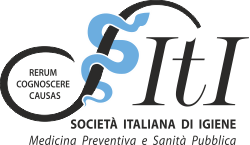The vaccine, obtained using live viruses which are rendered harmless, is administered subcutaneously and is capable of preventing the disease.
Most vaccinated people will not develop the disease. However, if a person who has been vaccinated contracts varicella (chicken pox), it will usually be a very mild form, with small number of vesicles, less likelihood of fever, and a shorter recovery time.
When to vaccinate
Children who have never had chickenpox should receive 2 doses of the vaccine:
- the first dose between 12 and 15 months of age;
- the second dose at 5-6 years of age. This can be given earlier, at least 3 months after the first dose.
Young people over 12 years of age and adults who have never had chickenpox and have never been vaccinated must receive two doses at least 28 days apart.
The varicella vaccine can be given at the same time as other vaccines. A combined vaccine called MPRV, which contains both varicella and the MMR vaccine for measles, mumps and rubella, can be administered in place of the two individual vaccines in children and twelve-year-olds.
Who should not be vaccinated
Anyone who has had a severe allergic reaction to a previous dose of the varicella vaccine or to gelatin or neomycin.
Pregnant women should wait until after giving birth before being vaccinated against chickenpox.
Pregnancy must be ruled out before vaccinating women of childbearing age, and an effective contraceptive must be used for 3 months after vaccination.
Some categories of people should consult their doctor to find out if they can be vaccinated against chickenpox:
- subjects with HIV/AIDS or carriers of other diseases that affect the immune system;
- those undergoing treatment with drugs that act on the immune system, such as steroids, for more than 2 consecutive weeks;
- those with any type of cancer;
- those who are undergoing cancer treatment with radiation or drugs.
When to postpone vaccination
- Patients with mild illnesses can generally be safely vaccinated. If, on the other hand, they have moderate or severe illnesses, it is advisable to delay vaccination until they have recovered;
- those who have recently received a transfusion of blood or other blood products (eg immunoglobulins) should ask their doctor how long they should wait before being vaccinated.
Vaccination risks
Like any other drug, vaccine can cause serious problems, such as severe allergic reactions. The risk of the varicella vaccine causing serious harm is extremely low. It is much safer to be vaccinated against chickenpox than to contract the disease.
The likelihood of a vaccinated person infecting other members of his/her family is very rare. Therefore, this does not represent a risk for pregnant women and/or individuals with a compromised immune system.
Most people who receive the varicella vaccine do not encounter any problems. Reactions are generally more likely after the first dose rather than after the second.
Minor problems
- Pain or swelling at the injection site (about 1 in 5 children and up to 1 in 3 adolescents and adults);
- fever (less than 1 in 10 people);
- mild skin rash, up to one month after vaccination (1 in 25 people).
Moderate problems
- Convulsions (spasms or contractures) caused by fever (very rare).
Serious problems
- Pneumonia (very rare).
Other serious problems have also been reported, including severe brain reactions and a decreased number of blood cells. These are situations that happen so rarely that experts cannot tell if they are caused by the vaccine or not. Even if they are, they are, however, extremely rare conditions.



